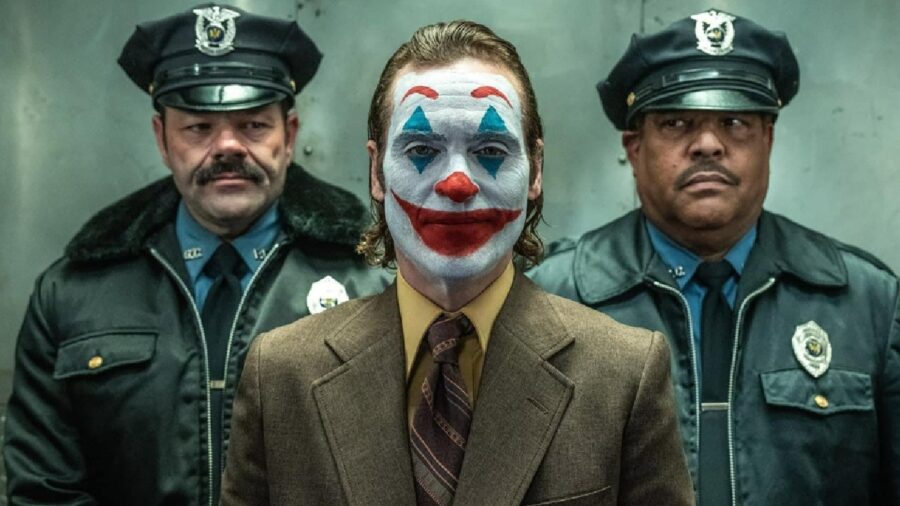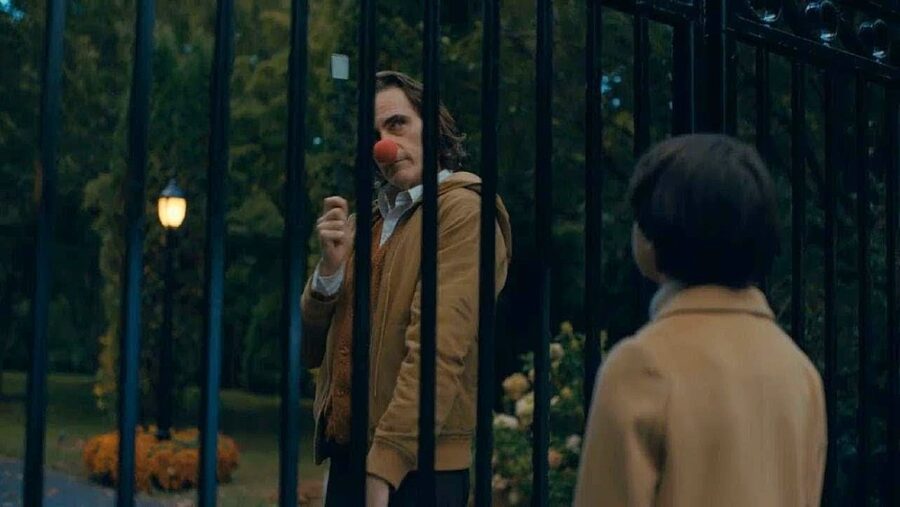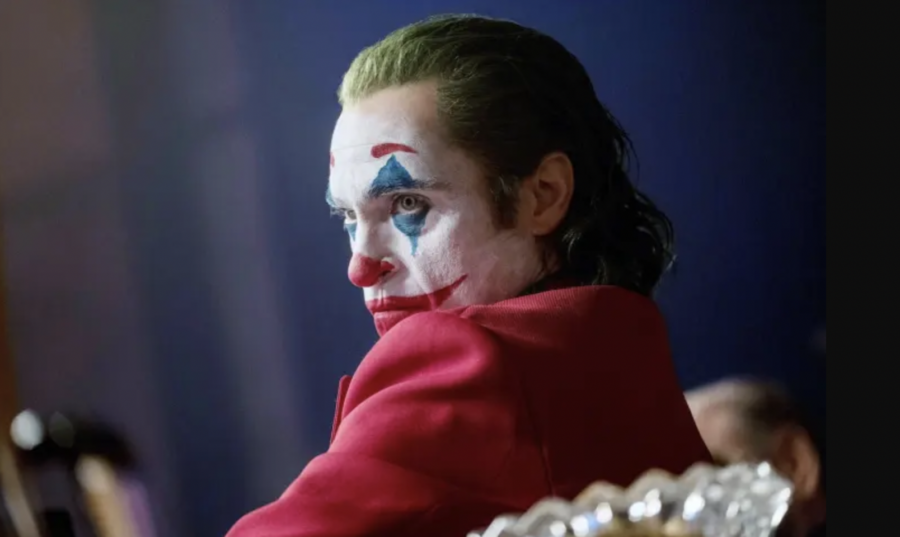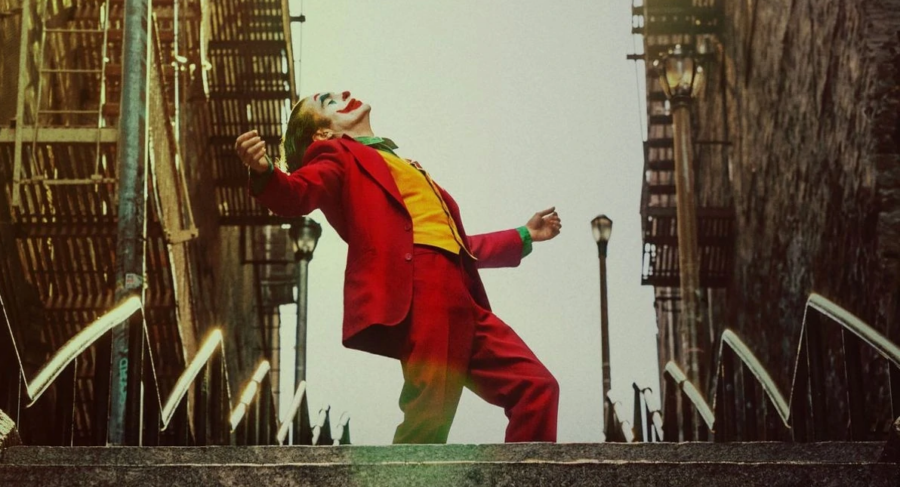The Joker Is Now Real And The Movie Perfectly Predicted Our Reactions

Recently, the world was rocked by the sudden assassination of UnitedHealthcare CEO Brian Thompson and the subsequent arrest of suspected shooter Luigi Mangione. Because I’m a pop culture writer and all-around geek, I tend to view major events through the lens of TV and film, and the widespread support for the CEO’s murder led me to a wild and somewhat uncomfortable realization. In short, the Joker is real and he is all of us, with the first Todd Phillips film about the clown prince of crime perfectly predicting how we would react to these bizarre events.
We Are All Clowns

What made Joker notable when it came out was how it offered a real look into the psychology of a comic book villain who is often dismissed as nothing more than a killer clown. Rather than giving the titular villain a very ambiguous origin like the comics and earlier films did, Joker very explicitly shows how his descent into murderous madness was prompted by the system continuously letting him down when he was at his most vulnerable. This culminates in his execution of three arrogant Wall Street bros and a sneering talk show host, and the movie’s conclusion shows how much his actions resonated with a supportive public.
When Joker came out, this ending seemed almost as crazy as the clown prince himself. It didn’t seem real that so many people would riot and otherwise support behind an utter stranger after finding out he was a murderer. Nonetheless, that’s exactly what happened recently when the UnitedHealthcare CEO was shot and killed. Even before Luigi Mangione was arrested as a suspect, there was an outpouring of public support for his actions. And since his arrest, he has enjoyed even more support, with even fellow inmates recently crying out that he should be freed even if he is found guilty.
Without commenting on the morality of the shooter or the moral culpability of the victim, I still can’t help but note that these events have proven the plot of Joker to be real and eerily prescient. In that movie, the title character kills powerful Wall Street bullies who we see harassing a helpless woman, and he later kills the talk show host who can’t believe our favorite clown finds his murderous actions so funny. Joker kills Murray Franklin, too, after realizing that the man’s primary role is to prop up support for a broken system that chews up dreams and spits out bodies.
The Eerie Similarities

If you think I’m reaching about the Joker becoming all too real, go back and rewatch the film and see how well some of the quotes match up to the discourse surrounding the CEO’s assassination. Joker confronts Murray and asks “Have you seen what it’s like out there?” and rhetorically asks whether powerful figures like Thomas Wayne “ever think what it’s like to be someone like me?” In justifying his decision to shoot the Wall Street bros who worked for Wayne, Joker declares that powerful figures “think we’ll just sit there and take it…that we won’t werewolf and go wild!”
There has been a similar refrain from those defending Brian Thompson’s assassination, with many pointing out that UnitedHealthcare’s history of denying claims (reportedly, they denied one out of every three claims) meant the company was responsible for hurting or even killing everyday people. As such, the CEO became a kind of Thomas Wayne figure, and many were just as unsympathetic to his death as Joker was to Murray Franklin for the same reason: a belief that people can only be pushed so far before they begin pushing back.
In spite of the groundswell of support for suspected shooter Luigi Mangione, mainstream media publications have largely reacted with horror at the idea of anyone condoning the murder of Brian Thompson. To those who condone or even celebrate that murder, this is emblematic of something Joker told Murray in another bit of real insight into the power structure tearing the country apart. “All of you, the system that knows so much: you decide what’s right or wrong the same way you decide what’s funny or not.”
We Get What We Deserve

While Luigi Mangione’s guilt has not yet been determined, it’s worth noting that his own background seems to indicate he might feel betrayed by the healthcare industry. He suffered a major back injury that made everything from surfing (a favorite hobby) to sex impossible, and he notably turned killer at 26, the same age at which young people can no longer be covered by their parent’s insurance. In Joker’s final joke to Murray, he keeps it real by asking what you get “when you cross mentally ill loner with a society that abandons him and treats him like trash?”
The fatal punchline is “You get what you f***ing’ deserve,” and it’s hard to avoid the conclusion that America is, in fact, getting what we deserve. The healthcare system is increasingly unaffordable and irrevocably broken, but we have all been conditioned to tolerate a world where executives can rake in millions of dollars while essentially handing the poor patients whose claims they dismiss a death sentence. A few years ago, though, it still seemed wild to think that a relative nobody attacking the rich and the powerful could so galvanize the public into treating him like a hero.
Now, though, the Joker is real, but it’s not necessarily the suspected shooter. Instead, it’s everybody who is increasingly going “werewolf” and “going wild” because of a desire to push back against a sick system that preys on even sicker people. And considering the recent glut of CEO wanted posters sprouting up in New York City to encourage other vigilantes to take further action against the rich and powerful, it seems like this joke won’t be ending anytime soon, and we may soon see more punchlines that forever change the discourse of healthcare in America.













Login with Google